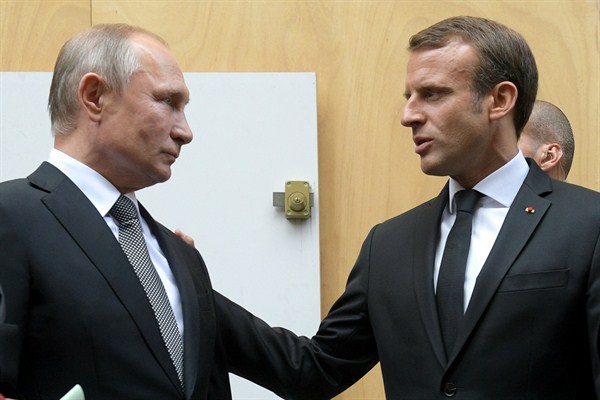Is President Emmanuel Macron turning France into the new indispensable nation of European and global politics? Or is he doomed to demonstrate that France is neither necessary nor sufficient to solve the world’s problems? After a string of successes in European Union politics in the late spring and summer, Macron has positioned himself at the center of diplomacy over the Iran nuclear deal and thawing Europe’s ties with Russia. It remains to be seen, however, whether he can actually achieve his objectives.
Macron has already gone through a few boom and bust cycles since winning the French presidency in his first stab at elected office. After that initial run of astonishing luck, in fact, it has often seemed as if he has been in the right place, but at the wrong time and with the wrong interlocutor.
His initial plans for ambitious EU reforms were initially slow-rolled by a risk-averse German Chancellor Angela Merkel. Any hopes of a follow-up compromise package were sunk by Merkel’s unexpected political decline in Germany’s elections in September 2017. Macron’s attempts to be Europe’s “Trump whisperer,” guiding the American president back into the fold on the Paris Agreement on climate change and the Iran nuclear deal, ran into the brick wall of Donald Trump’s obstinance. And after a flurry of reforms to France’s labor code in his first year in office, Macron lost any momentum he had gathered—and the better part of a year—to the Yellow Vest protest movement that emerged from out of nowhere in November 2018.

